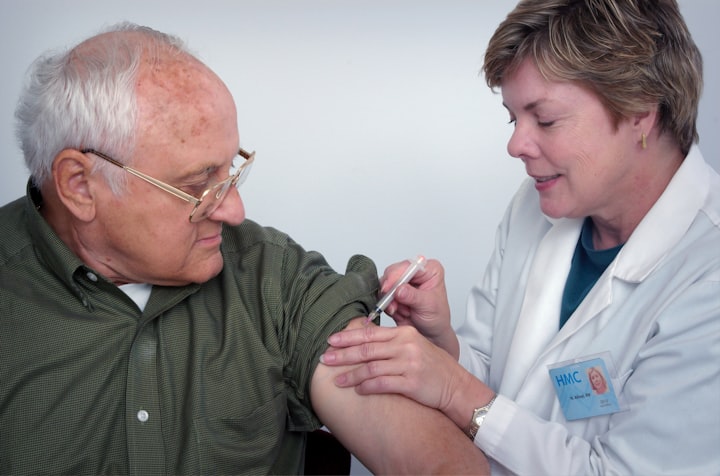There are a few ways to get health insurance for elders in the United States. The most common way is to get Medicare. Elders can also buy individual health insurance, or they can join a group health plan. Elderly people who are not covered by Medicare or a private health insurance policy can receive coverage through Medicaid.
What are the options for elder health care in the USA?
One option for elder health care in the USA is Medicare. It is a federal program that provides health coverage to individuals aged 65 and older, as well as those with certain disabilities or end-stage renal disease. Medicare has different parts that cover specific services, such as hospital stays (Part A), doctor visits and outpatient care (Part B), prescription drugs (Part D), and more. While there are costs associated with each part of Medicare, most people do not have to pay for Part A if they have paid into Social Security long enough.

Another option for elder health care in the USA is Medicaid. It is a joint federal-state program that provides health coverage to low-income individuals and families, including some seniors who meet certain income requirements. Medicaid covers a wide range of medical services, including doctor visits, hospital stays, nursing home care, and more. Eligibility rules vary by state, so it’s important to check with your local Medicaid office.
Lastly, private health insurance plans are also available for elders in the USA but can be costly compared to government-subsidized programs like Medicare or Medicaid. Private insurance plans offer varying levels of coverage depending on the plan purchased from premium policies covering various types of healthcare expenses like medicines or hospitalizations at any facility across the country while others may only cover basic needs such as doctor appointments or prescription drugs taken at home only.
The Affordable Care Act and its effect on elder health insurance.
The Affordable Care Act (ACA), also known as Obamacare, has had a significant impact on elder health insurance in the United States. Prior to the ACA, many older Americans struggled to obtain affordable and comprehensive health insurance coverage due to their age and pre-existing conditions. The ACA addressed this issue by prohibiting insurers from denying coverage based on pre-existing conditions and setting up state-based healthcare marketplaces where individuals could compare and purchase insurance plans.

Furthermore, the ACA expanded Medicaid eligibility criteria to include more low-income seniors, which increased access to healthcare for this vulnerable population. As a result of these changes, millions of older Americans gained access to quality healthcare services that were previously unavailable or unaffordable.
Despite these improvements, some critics argue that the ACA has not gone far enough in addressing issues related to elder health insurance. For example, while the Medicaid expansion has helped many seniors afford care, some states have chosen not to participate in this program. Additionally, premiums for individual plans sold through the marketplace can still be prohibitively expensive for many older adults who are living on fixed incomes. Overall though it is clear that there have been significant strides made since the implementation of this act toward increasing access and affordability for elderly populations across America.
Medicaid: One option for elder health care in the USA.
Medicaid is a federal and state-funded health insurance program that provides coverage for low-income individuals, including seniors. To qualify for Medicaid, an elder’s income must be below a certain threshold set by their state of residence. The program covers medical expenses such as doctor visits, hospital stays, prescription medications, and long-term care services.

One of the benefits of Medicaid is that it covers long-term care services. This includes nursing home care or in-home care services such as personal care assistance or skilled nursing care. These services can be expensive and unaffordable for many seniors without Medicaid coverage.
In addition to financial requirements, eligibility for Medicaid also depends on age, disability status, citizenship status, and other factors depending on the state’s rules. It’s important to note that Medicaid may not cover all medical expenses for elders but can provide significant cost savings compared to paying out-of-pocket or going without health insurance altogether.
Medicare: Another option for elder health care in the USA.
Medicare is a government-funded healthcare program that provides insurance coverage to people over 65 years of age, as well as some younger individuals with certain disabilities. It is an essential option for elder health care in the USA because it offers a range of benefits such as hospitalization, doctor visits, preventive services, and prescription drug coverage.

One of the primary advantages of Medicare is its affordability. Most beneficiaries pay no premiums for Part A (hospital insurance) because they have earned enough work credits throughout their careers. However, there are some costs associated with Parts B (medical insurance) and D (prescription drug coverage), which vary based on income and other factors.
To enroll in Medicare, you must be a USA citizen or legal resident who has lived in the country for at least five consecutive years. You can sign up during your initial enrollment period or during specific enrollment periods if you missed your initial opportunity to enroll. Overall, Medicare provides elders with access to affordable healthcare and ensures they receive the medical attention they need when they need it most.
Elderly citizens in the USA have been struggling to secure affordable health insurance options in recent years.
One of the biggest challenges facing elderly citizens in the USA is securing affordable health insurance. While Medicare offers some coverage, it doesn’t cover everything, and premiums can be expensive. In addition, many seniors have pre-existing conditions that can make it difficult to find affordable coverage.

Fortunately, there are a few options for seniors looking for health insurance. One option is to look into supplemental insurance plans that can help cover out-of-pocket expenses not covered by Medicare. These plans can include things like prescription drug coverage, vision and dental care, and more.
Another option for seniors is to look into Medicaid programs designed specifically for low-income seniors. These programs offer comprehensive health coverage at little or no cost to eligible individuals, making them a great choice for those who may not otherwise be able to afford healthcare coverage. Overall, while finding affordable healthcare options as an elderly citizen in the USA may be challenging, there are options available that can provide much-needed financial relief and peace of mind.






Comments
There are no comments for this story
Be the first to respond and start the conversation.